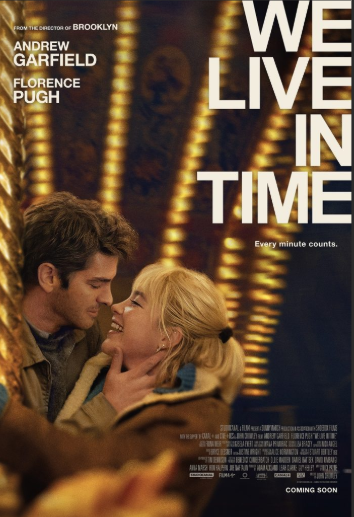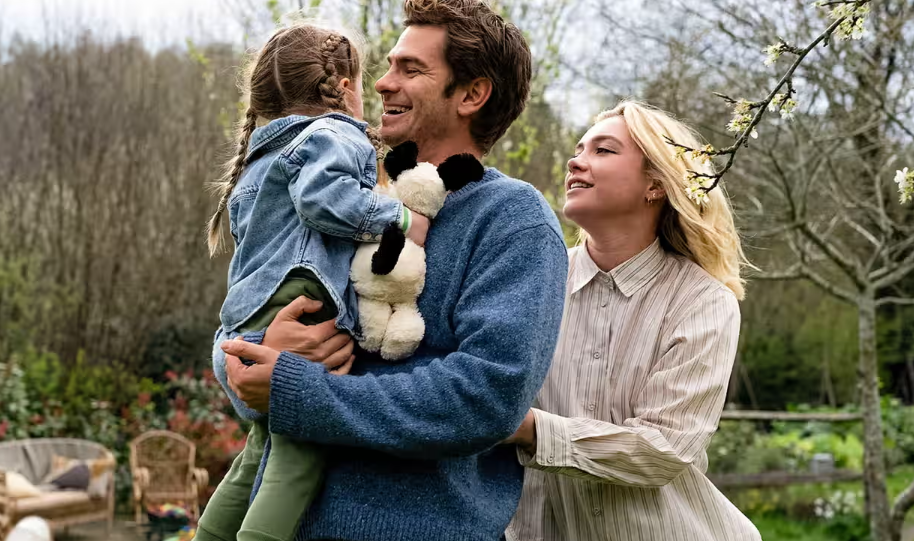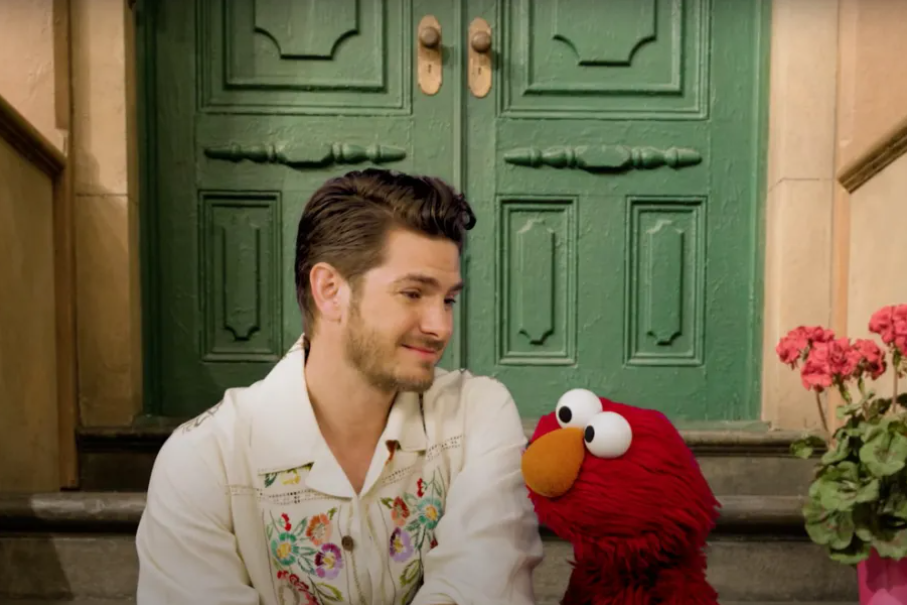Film review – We Live in Time
Warning - this review contains spoilers!
Released in UK cinemas earlier this month, We Live in Time stars Andrew Garfield and Florence Pugh in a romantic comedy-drama that explores love, life and loss.
In her latest blog for Part of Life, Amy Jackson reviews the film, looking at the emotional themes involved and how they are portrayed and the important questions it raises about mortality and memory.
What happens in We Live in Time?
Released in UK cinemas earlier this month, We Live in Time stars Andrew Garfield and Florence Pugh in a romantic comedy-drama that explores love, life and loss. In a chance encounter, newly divorced marketing executive Tobias (Garfield) meets former-figure skater turned chef Almut (Pugh), and the film follows their relationship over the span of a decade.
On the surface it could appear that We Live in Time is another fluffy feel-good love story, however, anyone who has seen the TikTok trend of people filming themselves before and after watching the film will tell you otherwise. Told in a non-linear narrative, viewers are hit with spoilers early in the film, where one of the first scenes shows Almut being told that her cancer has returned. The following scene where she and Tobias emotionally discuss the potential of her undergoing treatment seemingly reveals Almut’s fate at the end of the film, which subsequently hangs over the rest of the movie, making the happier moments of their relationship, including the birth of their daughter, even more bittersweet.
Life, death and living in the moment
There is a contrast between Almut and Tobias’ life together at the points in which she receives both diagnoses. When it’s first revealed she has ovarian cancer, the couple have only just moved in together, having previously fought over Tobias’ desire to start a family with her. When she discovers the cancer has returned, the couple have a young daughter, Ella, and Almut’s career has taken off, seeing her as the head chef of her own restaurant.
Despite Tobias’ insistence that she undergoes treatment, Almut is reluctant, wanting to make the most of the time she has left and telling him,
“I’m not interested in a treatment that accidentally wastes our time”
and how she’d rather have six ‘amazing’ months instead of twelve months where she is weak and unwell if the chemotherapy isn’t successful.
Almut’s passion for her career is evident from the start of the film, and even more so when shortly after deciding to go ahead with chemotherapy, she’s invited to compete in the Bocuse d'Or, a prestigious cooking competition. Not only does training for the competition conflict with her treatment, but also hers and Tobias’ upcoming wedding.
She decides to train for the competition in secret - while at the same time suffering from the effects of chemotherapy – and later makes it to the finals, which she and Tobias come to heads over once he finds out.
After Tobias accuses Almut of choosing her career over her family and prioritising her treatment, she reveals her true reasons behind why she is so focused on the competition – how she’s remembered, especially by their daughter.
In one of the most emotionally charged scenes in the film, Almut explains that she wants her daughter to remember her mother as an accomplished, passionate chef who never gave up, rather than someone who merely got sick and died. She tearfully tells him:
“I can’t bear the thought of being forgotten.”
We Live in Time Ending explained
Viewers are given a pretty clear snapshot on how the We Live in Time will end during the opening scenes; however, it could be argued that the final scenes come across as relatively unexpected in comparison to the rest of the movie.
The film doesn’t shy away from showing the difficult moments in Tobias and Almut’s relationship, and there are multiple scenes in which we see her suffering from the effects of chemotherapy too. Similarly, one of the main talking points of the film has been the highly intense birth scene, in which the couple welcome their daughter (in the bathroom of a petrol station on New Year’s Eve after getting stuck in traffic).
There are so many ways in which death has been portrayed in film over the years, from heartbreaking deathbed goodbyes to quiet and discreet deaths that occur offscreen. In the case of We Live in Time, it’s almost a mixture of both. Almut’s death indeed occurs offscreen, however that doesn’t make it any less emotional. After completing the finals of the cooking competition, Almut hangs up her chef’s hat for the last time leaves before the winner is revealed, instead going ice skating with Tobias and Ella.
The significance? Almut mentions earlier in the film that she used to go to the ice rink with her father when she was young and hadn’t been able to bring herself to go back there since his death. After skating together as a trio, Almut skates solo to show her daughter some of her skills. The viewer then sees her on the other side of the rink, smiling and waving to Tobias and Ella as they look on proudly. There’s no flatlining monitors, no heartfelt speeches, but the simplicity of the scene and the feeling of acceptance it creates is more than enough to signify Almut’s death. If anything, it makes it even more powerful.
Remembering the little things
In the final scene of the film, some time has passed, and the viewer sees Tobias and Ella returning home after visiting their chicken coop. They’re accompanied by their dog, a nod to Almut’s suggestion earlier in the film that they consider getting a dog as way of helping Ella in her grief.
In just a short scene, it shows the significance of remembering the little things about our loved ones who have died – in this case, it’s Tobias showing Ella how to crack an egg, the same way Almut had taught him at the start of their relationship. It’s made even more poignant knowing Andrew Garfield’s personal experience grief, having lost his mother, Lynn, to pancreatic cancer in 2019.
In the run up to the release of We Live in Time, Garfield has openly spoke about his experiences of grief, in one interview telling Sky News that he bakes her chocolate chip cookies every year on her birthday and the anniversary of her death. The most memorable, however, was his appearance on Sesame Street last year that quickly went viral, in which he chats to Elmo about Lynn and how it’s “okay to miss somebody.”
We Live in Time prompts some interesting questions that we can consider when faced with our own mortality. How do we want to be remembered? Is it better to look forwards or appreciate what we have now? At the heart of the film, however, it presents us early on with the reminder that life is short, so making the most of every moment is key.




